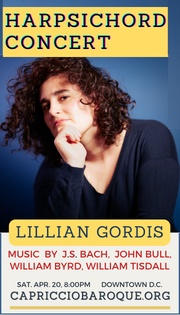Cellist Schwarz unearths fascinating rarities at Austrian Embassy

Julian Schwarz and Marika Bournaki performed Friday night at the Austrian Embassy.
Julian Schwarz had a lot to celebrate on Friday night. The American-born cellist played a recital at the Austrian Embassy, presented by the Embassy Series, bringing together composers associated with the city of Vienna. In several amiable turns at the microphone between pieces, Schwarz explained that since his last performance here, in 2015, he had become an Austrian citizen and was now engaged to Marika Bournaki, the pianist sharing the stage with him.
The program ranged widely, including prominent composers as well as some obscure ones. The latter offered the most compelling playing of the evening, including the virtuosic exploits of Franz Ignaz Danzi’s Variations on “Là ci darem la mano.” Schwarz dazzled with off-string playing in the first variation, bravura sound on the A string in the second, and extensive runs and multiple stops in this piece written by Danzi for himself.
That tune, from the seduction scene in Don Giovanni, is perhaps not the most apt for an engagement, but was neatly balanced by the more nuptial one in Beethoven’s Variations on “Bei Männern, welche Liebe fühlen,” the duet from Mozart’s The Magic Flute. This put the spotlight more on Bournaki, who played with elegant reserve and musical phrasing at the keyboard. Both musicians interpreted the minor variation in this piece with a somewhat zealous romantic touch, but with lovely results.
The most intriguing discovery of the concert came with two pieces by Joachim Stutschewsky, an early member of the Kolisch Quartet in Vienna in the 1920s, strongly associated with Arnold Schoenberg. This cellist and composer’s music came to Schwarz’s attention through the work of musicologist Neil W. Levin, who knew the cellist through his father, conductor Gerard Schwarz, long-time music director of the Seattle Symphony and champion of American music and Jewish composers.
In Stutschewsky’s Legend, Schwarz drew from his Neapolitan cello, made by Gennaro Gagliano in 1743, a gorgeous melody adorned with beautiful blue notes and folk music-like vocal cantillation. The Freilachs Tanzparaphrase, on a simple, joyful traditional tune, was also a delight, although the double-stop passages here proved more challenging. Stutschewsky escaped Austria in 1938, fleeing to Palestine, where he wrote these pieces after it became the state of Israel.
Schwarz was less effective in the first half, devoted to more familiar composers. Schumann’s Drei Fantasiestücke opened with a dreamy first movement, given an easy rubato by both cellist and pianist. The challenges of the faster movements caused some uncertainty of intonation and tonal control, partially due to an overactive vibrato. Webern’s early, dulcet Two Pieces and tart, compact Three Little Pieces, both heard recently from Johannes Moser, made charming appetizers between the main courses.
The most familiar work of the evening was Schubert’s Sonata in A Minor, originally to be played on the arpeggione, an instrument now defunct. Schwarz brought a more controlled vibrato and compressed sound to this gorgeous piece, with much perilous high writing. Bournaki kept pace with Schwarz, sensitively moving with him through several modifications of the tempo with the flexibility of folk musicians. Schwarz applied his most silky legato to the slow movement of this piece, including the delicate cadenza that led into the daring finale, played with flair.
Another rarity concluded the recital, Schwarz’s own arrangement of Korngold’s Suite from Much Ado about Nothing. Originally incidental music for the Shakespeare play, the composer arranged four movements from the suite, minus the overture, for solo violin. Schwarz showed that the music works almost as well on the cello, especially the blustery comic march “Dogberry and Verges” and the lyrical moonlit serenade “Scene in the Garden.”
A standing ovation elicited an encore from the duo, an arrangement of Schubert’s rhapsodic “Du bist die Ruh.”
Violinist Bruno Monteiro and pianist Nuno Marques will play a recital of music by Brahms, Franck, Branco, Barbosa, and Saint-Saëns 7:30 p.m. April 8 at the residence of the Portuguese Ambassador. embassyseries.org; 202-625-2361







